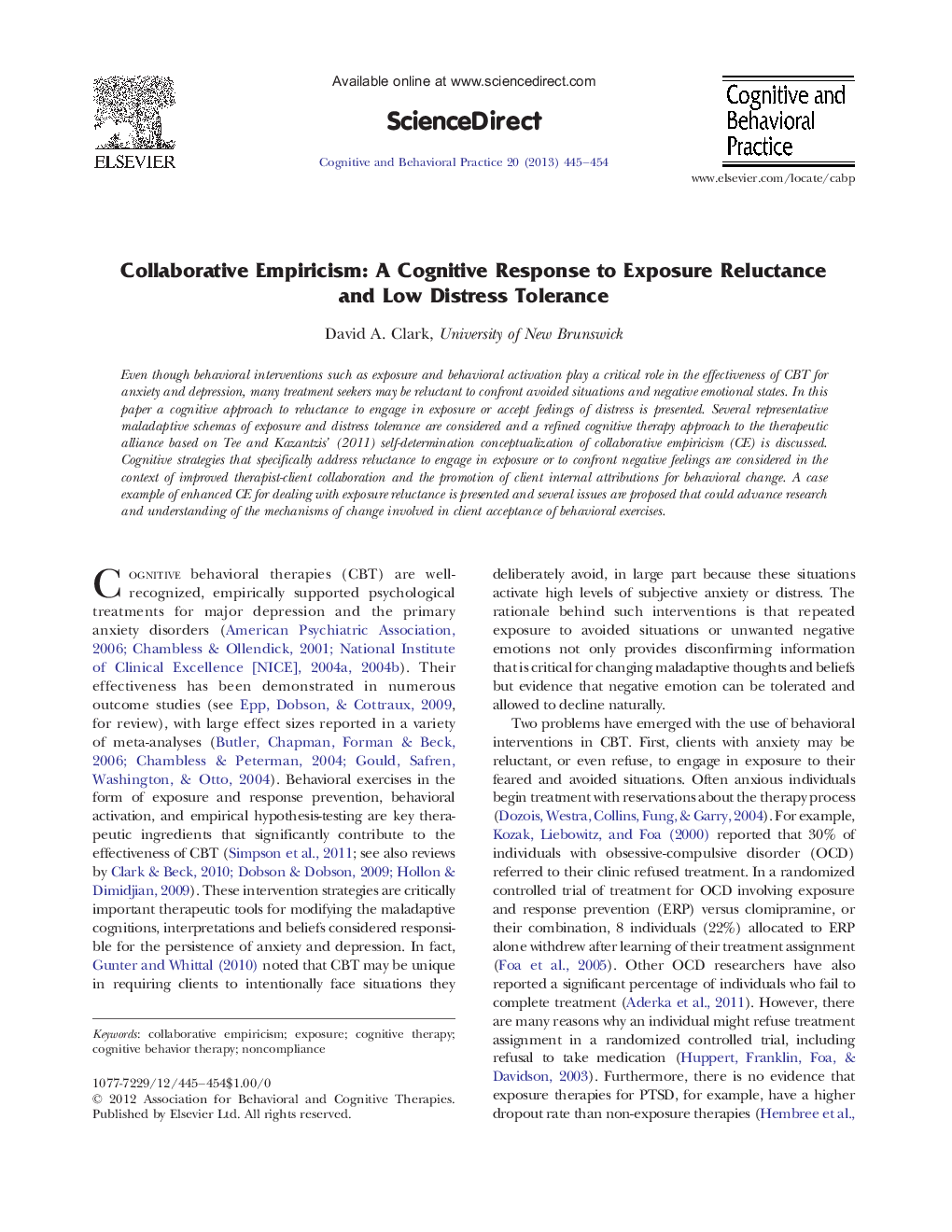| Article ID | Journal | Published Year | Pages | File Type |
|---|---|---|---|---|
| 904301 | Cognitive and Behavioral Practice | 2013 | 10 Pages |
Even though behavioral interventions such as exposure and behavioral activation play a critical role in the effectiveness of CBT for anxiety and depression, many treatment seekers may be reluctant to confront avoided situations and negative emotional states. In this paper a cognitive approach to reluctance to engage in exposure or accept feelings of distress is presented. Several representative maladaptive schemas of exposure and distress tolerance are considered and a refined cognitive therapy approach to the therapeutic alliance based on Tee and Kazantzis’ (2011) self-determination conceptualization of collaborative empiricism (CE) is discussed. Cognitive strategies that specifically address reluctance to engage in exposure or to confront negative feelings are considered in the context of improved therapist-client collaboration and the promotion of client internal attributions for behavioral change. A case example of enhanced CE for dealing with exposure reluctance is presented and several issues are proposed that could advance research and understanding of the mechanisms of change involved in client acceptance of behavioral exercises.
► Many individuals seeking CBT for anxiety are reluctant to engage in exposure or to experience heightened distress. ► Maladaptive beliefs about exposure and distress tolerance may be responsible for behavioral homework noncompliance. ► Collaborative therapeutic style targeting maladaptive beliefs about exposure may promote client engagement. ► Collaborative empiricism may encourage client acceptance of behavioral exercises. ► An OCD case is presented utilizing specific collaborative strategies to promote engagement in behavioral exposure.
